![]()
![]()
![]()
Use LEFT and RIGHT arrow keys to navigate between flashcards;
Use UP and DOWN arrow keys to flip the card;
H to show hint;
A reads text to speech;
20 Cards in this Set
- Front
- Back
|
Rotation |
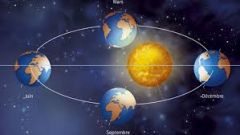
the spinning of a celestial body, such as a planet, around an axis
|
|
|
revolution |
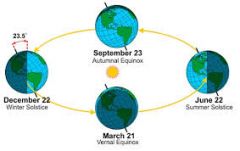
the orbiting of an object around another object |
|
|
Asis |
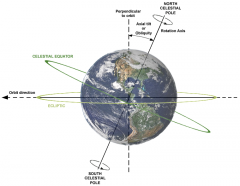
an imaginary line around which an object spins or revolves; also one of a number of lines used for determining coordinates |
|
|
latitude |
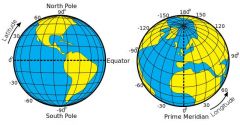
angular distance north and south of the equator |
|
|
Orbit |
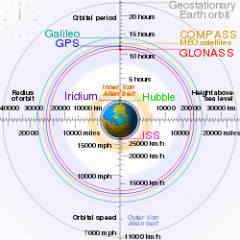
the circular path of an object as it revolves around another object Key |
|
|
Gravity |
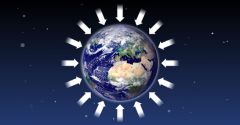
an attractive force present between any two masses |
|
|
equator |
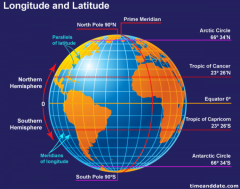
an imaginary line that divides Earth into Northern and Southern Hemispheres; located halfway between the North and South Poles (related word: equatorial) |
|
|
Phase |
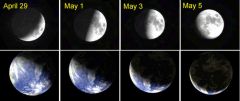
the apparent shape of the lighted part of the moon that can be seen from Earth |
|
|
Eclipse |
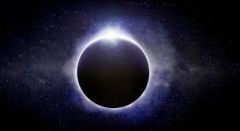
an event that happens when the shadow of an object in space falls on the surface of another object |
|
|
Solar Eclipse |
the temporary blockage of sunlight by the Moon as it travels between Earth and the Sun |
|
|
Telescope |
an instrument used to observe objects that are far away |
|
|
Solar System |
a system of objects that revolve around a star such as the Sun |
|
|
Theory |
a set of statements or principles devised to explain a group of facts or phenomena, especially one that has been repeatedly tested or is widely accepted and can be used to make predictions about natural phenomena. |
|
|
Star |
a massive ball of gas in outer space that gives off heat, light and other forms of radiation |
|
|
Space |
the large, empty part of the universe that does not contain any matter |
|
|
Asteroid |
a small object made of rock or metal that orbits the sun |
|
|
Comet |
a body of ice and dust that travels in a long, narrow orbit around the Sun |
|
|
Hydrogen |
the chemical element consisting of one proton and one electron |
|
|
Solar Energy |
energy that comes from the sun |
|
|
Fusion |
energy that comes from the sun |

